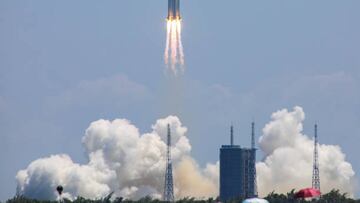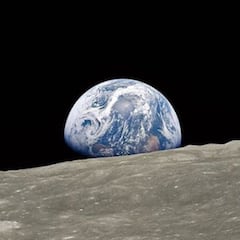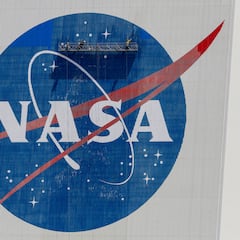Where could Chinese rocket debris falling from space hit Earth?
NASA has criticised aspects of China’s latest rocket launch despite also taking the same action on dozens of occasions in recent years.


The Chinese space agency, the China National Space Administration (CNSA), celebrated the succesful launch of the second part of its new space station, named ‘Heavenly Palace’, on July 24. It is expected that the station will be completed by the end of 2022.
China launches second module for its space station Heavenly Palace https://t.co/iLvlig3BxY pic.twitter.com/JChCz5eYKC
— BBC News (World) (@BBCWorld) July 24, 2022
One aspect of the launch has scientists less enthused. This is the subject of how jettisoned parts of the rocket will come back to Earth, or rather crash.
The first stage of the rocket is currently floating in orbit, but it is being abandoned and left to hurtle back towards the planet. There was a similar incident back in 2021 in which the same section of a sister rocket crash landed in the Arabian peninsular, without causing harm.
Jonathan McDowell works at the Harvard-Smithsonian Center for Astrophysics.
Two objects cataloged from the CZ-5B launch: 53239 / 2022-085A in a 166 x 318 km x 41.4 deg orbit, 53240 / 2022-085B in a 182 x 299 km x 41.4 deg orbit. Orbital epoch of ~1200 UTC confirms that the inert 21t rocket core stage remains in orbit and was not actively deorbited.
— Jonathan McDowell (@planet4589) July 24, 2022
The Chinese government has played down concerns of danger surrounding the rocket. China’s foreign ministry has said in the past that the likelihood of issues “causing harm on the ground is extremely low.”
Is China alone in these actions?
Related stories
Nope. Despite the US governing its space debris under the Orbital Debris Mitigation Standard Practices (ODMSP), NASA regularly flouts their own rules. Between the seven years of 2011 and 2018, the US Air Force waved its own safety requirements and let 37 of 66 launches brekaup in the atmosphere. These 37 re-entries had a greater risk than 1 in 10,000 chance of casualties.
“There is no international consensus on the acceptable level of risk, and other spacefaring states — including the USA — make similar choices concerning uncontrolled reentries,” the authors of an academic paper into the risks of space debris wrote. The paper was led by Canadian political scientist Michael Byers, of the University of British Columbia.

